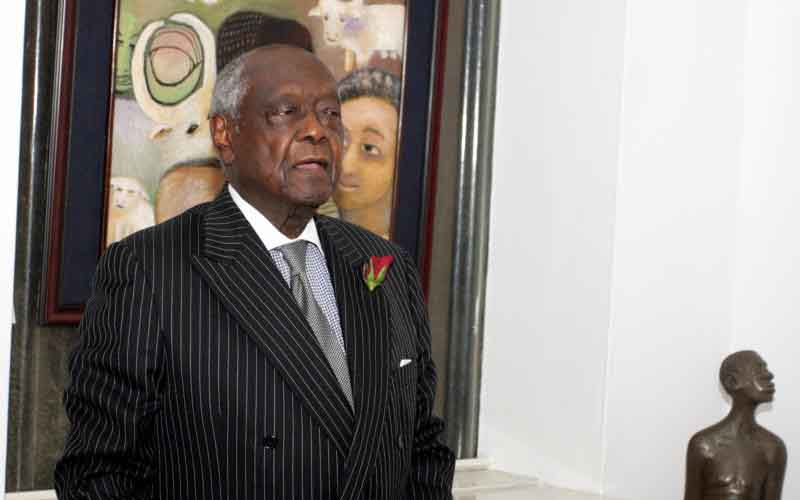×
The Standard e-Paper
Kenya’s Boldest Voice

Sir Charles Njonjo during the relaunch of Gallery Watatu at Lonrho House, Nairobi. [Courtesy]
Since it’s against our culture to speak ill of the dead, I’ll steer clear of past claims that the departed former Attorney General, Charles Mugane Njonjo, and his associates made a small fortune by adding a few zeroes to government tenders in his heyday.